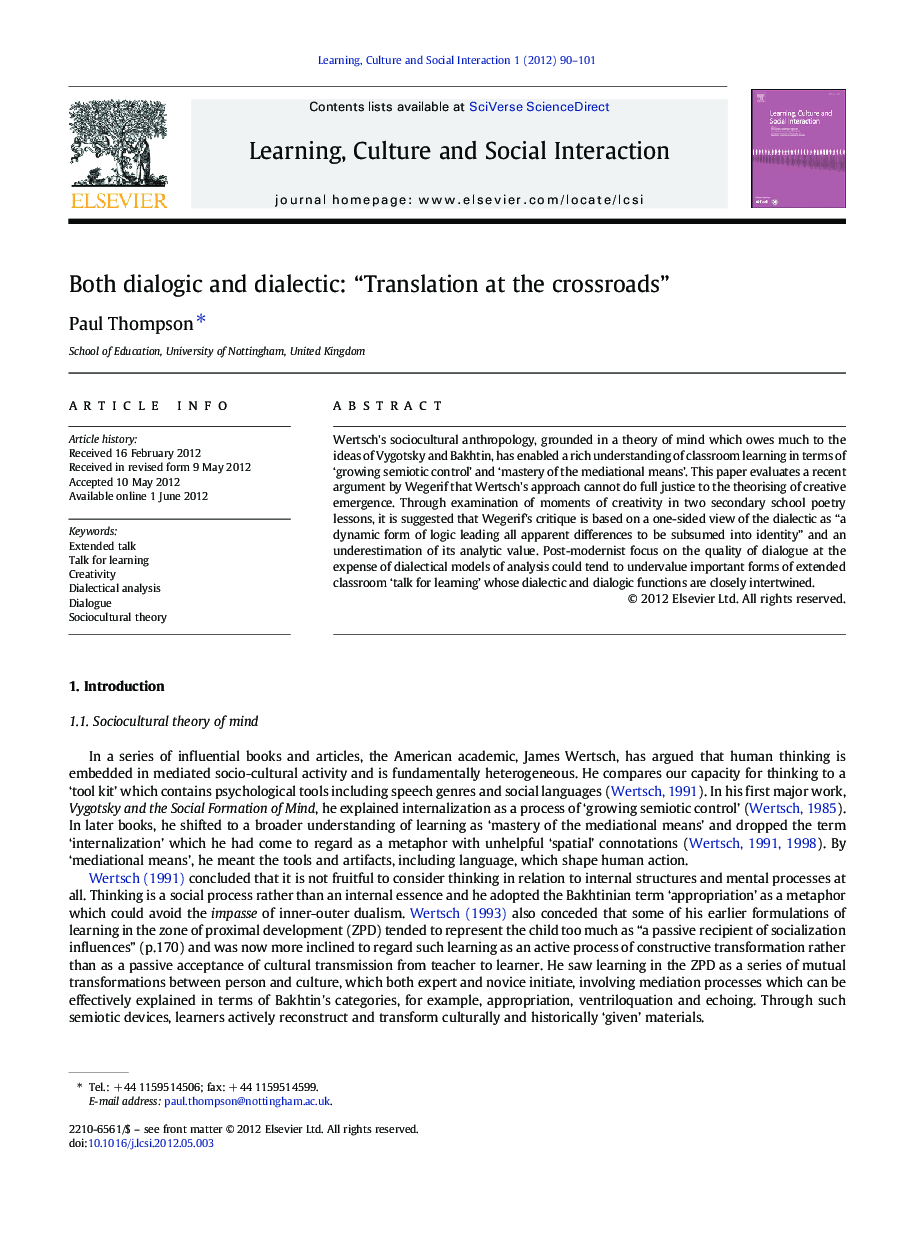| Article ID | Journal | Published Year | Pages | File Type |
|---|---|---|---|---|
| 364435 | Learning, Culture and Social Interaction | 2012 | 12 Pages |
Wertsch's sociocultural anthropology, grounded in a theory of mind which owes much to the ideas of Vygotsky and Bakhtin, has enabled a rich understanding of classroom learning in terms of ‘growing semiotic control’ and ‘mastery of the mediational means’. This paper evaluates a recent argument by Wegerif that Wertsch's approach cannot do full justice to the theorising of creative emergence. Through examination of moments of creativity in two secondary school poetry lessons, it is suggested that Wegerif's critique is based on a one-sided view of the dialectic as “a dynamic form of logic leading all apparent differences to be subsumed into identity” and an underestimation of its analytic value. Post-modernist focus on the quality of dialogue at the expense of dialectical models of analysis could tend to undervalue important forms of extended classroom ‘talk for learning’ whose dialectic and dialogic functions are closely intertwined.
